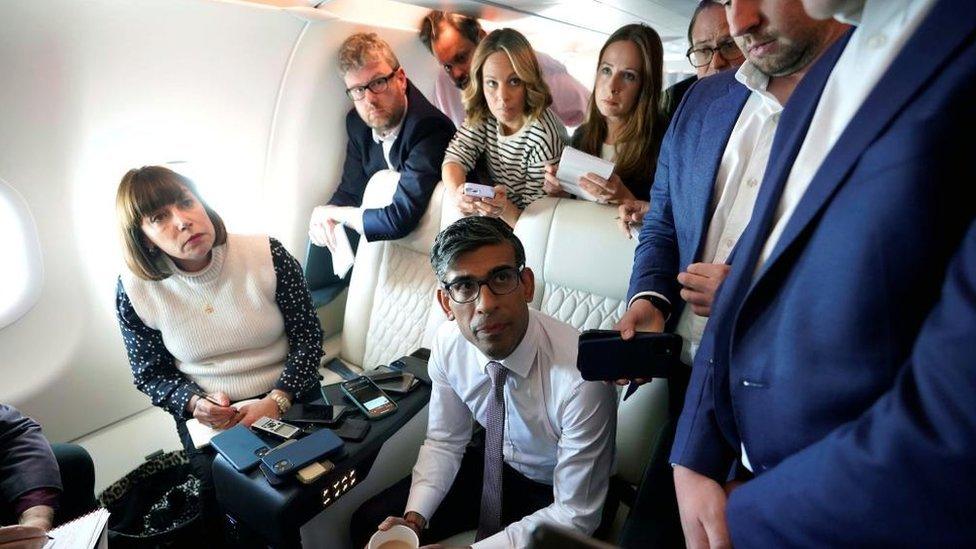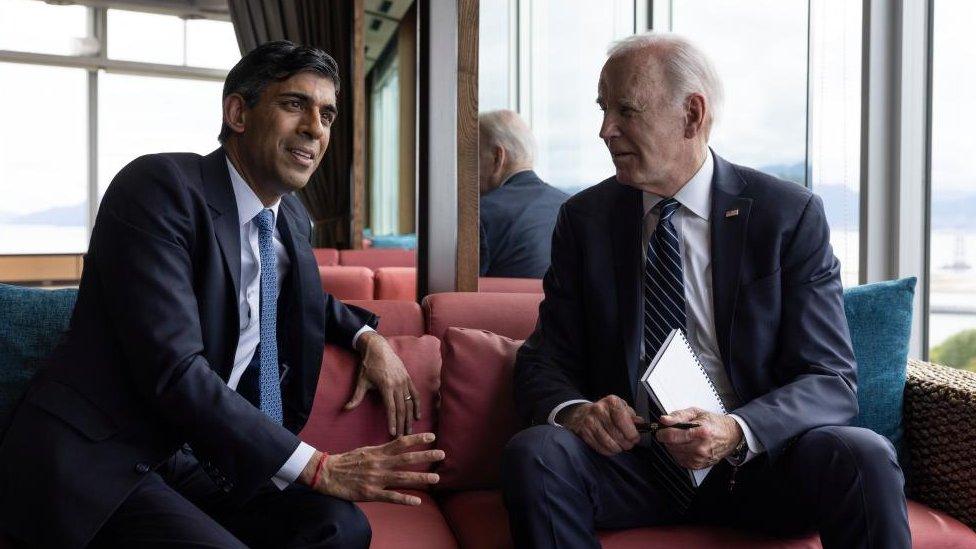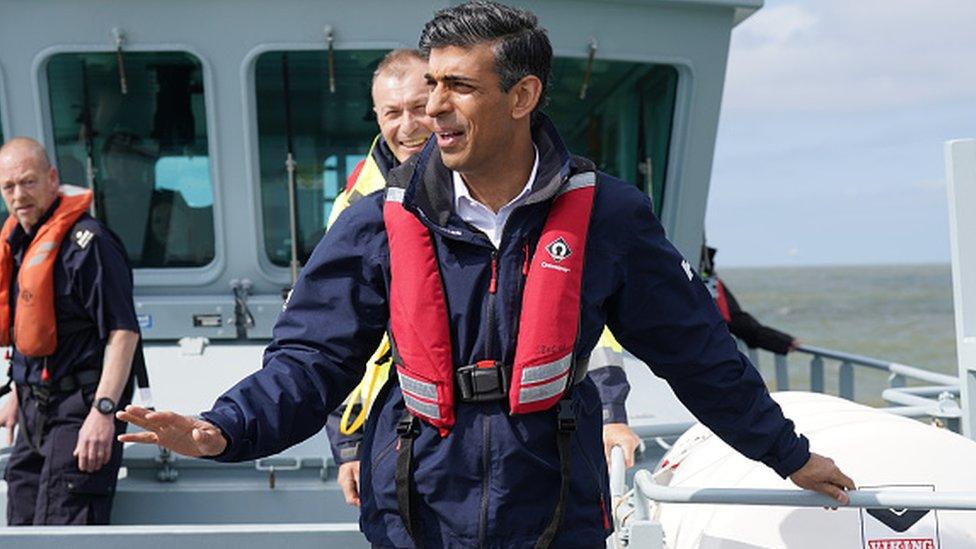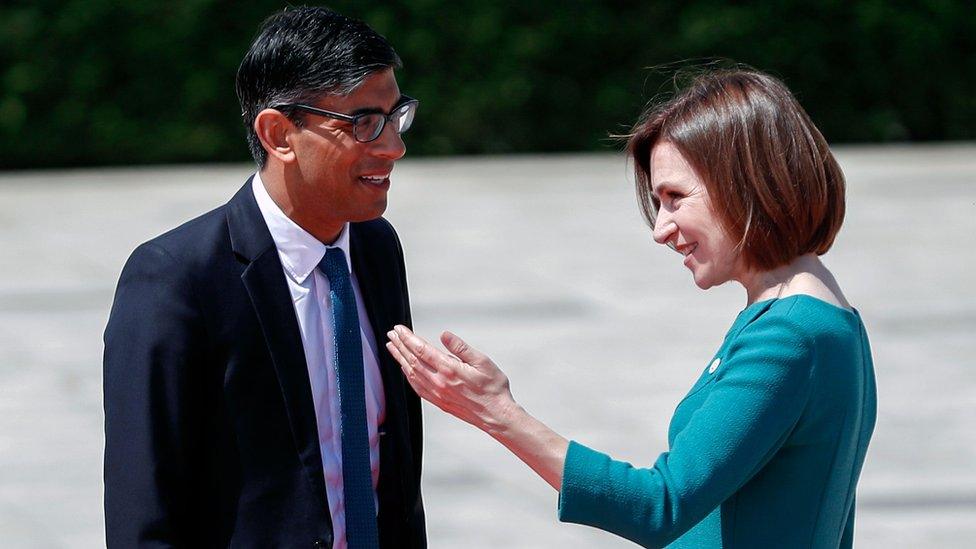Chris Mason: What Sunak is trying to achieve in the US
- Published

This is the fourth time in as many months that the prime minister has met President Biden.
They met in San Diego in March, Belfast in April, Hiroshima in May - and now it is June, and it is Washington.
I have been in tow each time, and it's been fascinating to get a glimpse of their growing relationship.
And quite some growing it's had to do.
When Rishi Sunak became prime minister, President Biden, in congratulating him, managed to call him Rashee Sanook, external.
Not long after that, Mr Sunak acknowledged to me that the UK's reputation had "taken a bit of a knock," courtesy of the rolling political chaos of much of 2022.
Core to his brand as prime minister is attempting to personify the opposite: hoping to be seen as dependable, believable, credible, trustworthy.
Little wonder, then, he ducked a question on the way here about what he made of Prince Harry's remarks that the UK is judged globally by the state of the press and the government - both of which the prince reckons are at "rock bottom."
But, having tried to prove he can be the gentle jazz of politics rather than the heavy metal that came before, the challenge for Rishi Sunak now is delivery, and quickly, with a general election expected next year.
Ukraine will be a recurring theme on this trip.
Mr Sunak has told us the UK is looking into who was to blame for the destruction of the huge dam there.
He said it was too soon to make "a definitive judgement."
But, he added, if it was intentional, it would represent "the largest attack on civilian infrastructure in Ukraine since the start of the war."
The UK and US's ongoing support for Kyiv will be central to the discussions between the leaders at the White House on Thursday.

Rishi Sunak and Joe Biden met in Japan, last month
Also on the agenda, the regulation of artificial intelligence and economic cooperation.
On AI, the prime minister is expected to make the case that the UK can be a global leader on its development and regulation.
And on the economy, Rishi Sunak has said he will "continue discussing" America's Inflation Reduction Act - which has seen billions in new subsidies targeted at green industries in the US - with some fretting the UK is being left behind.
You can read more about it here from my colleague Faisal Islam.
The gulf between the president and the prime minister's instincts on this is wide, if not surprising: a Democratic president opting for massive state intervention, in the hope of greening his economy, reviving left behind areas and bringing manufacturing back to the US.
And a Conservative prime minister not naturally drawn towards huge interventions like this - and suggesting "subsidy races," as he put it, were a "zero sum" game.
But even if there is a philosophical opposition from some to what the president is doing, what are the political responses to it?
Rishi Sunak said "we've created lots of jobs" in green industries and "reduced carbon faster" than comparable countries.
He doesn't believe attempting the same plan as Washington would be wise.
Meanwhile, Rachel Reeves - who hopes to become the UK's first ever female chancellor if Labour win the next election - was in the US capital just a few weeks ago, and openly embracing a strategy very similar to Joe Biden's.
Is her plan affordable, and achievable? They are big and, as yet, unanswered questions.
What is much clearer is President Biden's attempts to rewire the global economy has implications all over the place - not least on our own domestic economy - and politics.
- Published5 June 2023

- Published1 June 2023
